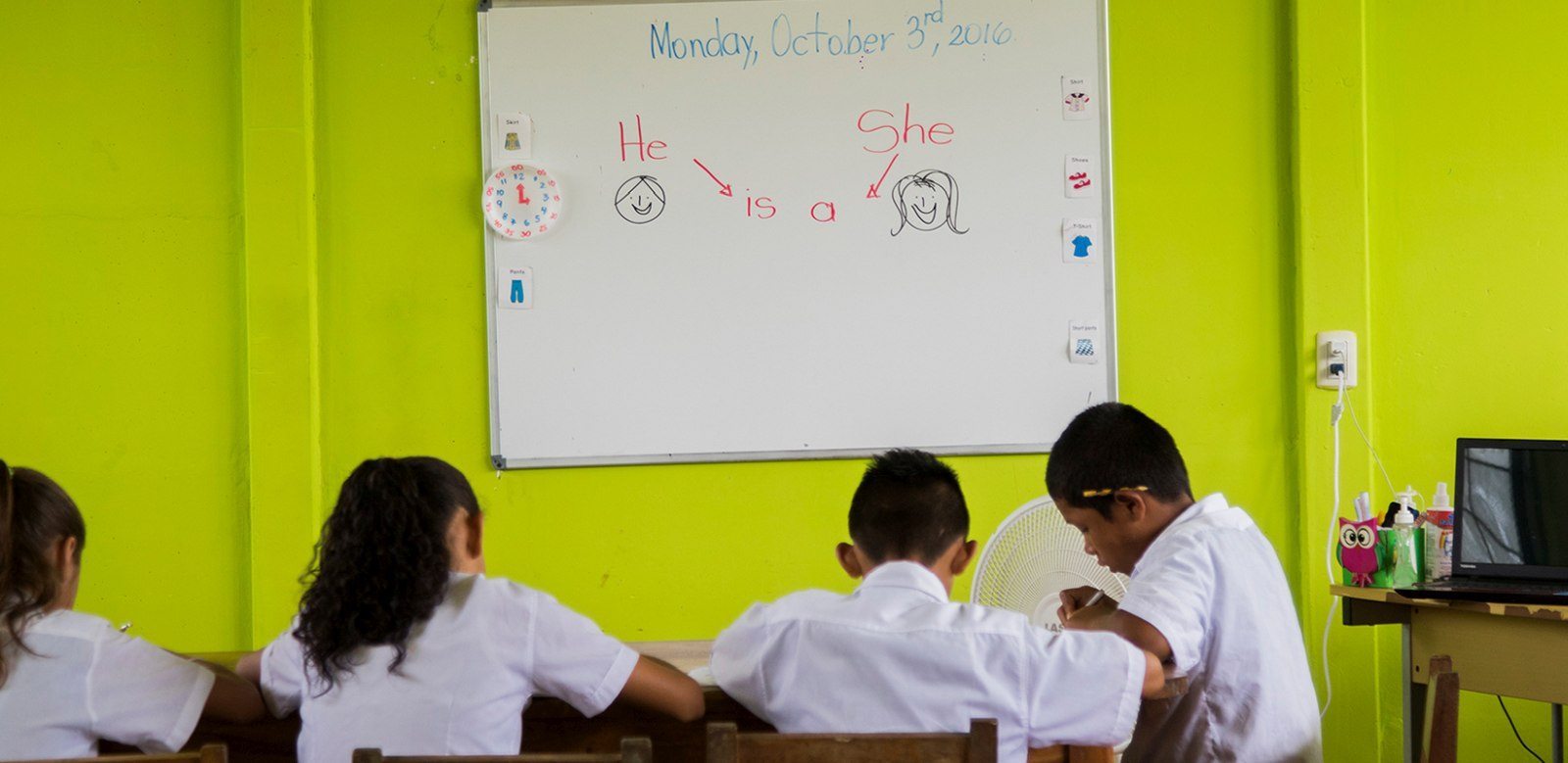
For students at rural schools in Nicoya that are classified as unidocentes, or single-teacher facilities, possibilities to learn English are becoming increasingly limited due to reductions in the number of teachers assigned to teach the subject.
Daniel Briceño Arguedas, father of children at the Colas de Gallo School in Nicoya, said that he is worried for the school’s students. “Here the children are kind of isolated; while in other schools they study second languages, here they graduate from sixth grade to go to high school and they haven’t been taught even basic English nor other languages, and the kids have a disadvantage.”
In that regard, Jesus Baltodano, a teacher at Colas de Gallo, feels that the situation in the area is desperate. “The problem is that every year there are fewer children enrolled, as the maternity rate is declining, and it’s a pity. The children need to experience the entire process of learning English, because otherwise how are they going to fare in high school?”
The same problem confronts the school in Oriente de Nicoya. English instruction is nonexistent and enrollment is falling. The teachers of both schools have no command of the subject, so the children learn nothing about it.
Regarding the reduction that happened this year, not only in the number of lessons per week but also in coverage, Diana Sanchun, regional assessor for English education, said, “In rural schools, enrollment is very low and there have even been cases where they lost their assigned teacher due to the enrollment decreasing, [for example] the case of Caballito and Mansion. On the other hand, in the past the teachers were able to give 45 lessons per week; now it’s only 34,” she explained.
According to Sanchun, low enrollment in rural areas and single-teacher schools contribute to the problem, as in order to assign a teacher to a school, 31 to 35 students should be covered by each section, a requirement that many schools do not meet.
Out of eight educational districts that belong to the Regional Education Directorate of Nicoya, there are 65 teachers certified to teach the subject, of which the majority are found in central schools: 16 in downtown Nicoya, nine in Nosara, seven in Nandayure, eight in Corralillo, eight in Mansion and five in Curime Belen.
Sanchun explained that the distance to rural schools is an obstacle to coverage, as it would be difficult for a teacher assigned to Nicoya to travel to a rural school to give a lesson. It would not be worthwhile, as the cost of travel, gas and food would be added to that of the lesson.
But in addition to coverage, the quality of English instruction is also lacking. According to Sanchun, there is a lot to be improved. “Last year we did a study using data from technical professional high schools (CTPs – Colegios Técnicos Profesionales) in Hojancha, Corralillo, Nandayure, Mansion and Nicoya, to evaluate the quality of what had been learned in the subject. Unfortunately the results were very poor. That will help us to improve what we are doing poorly and what we’re providing to the children. The measurement is taken every two years,” she indicated.
Sanchun said that the lack of infrastructure and equipment such as recorders, computers, projectors, CDs and visual materials is also a limiting factor. “For primary school, 80% of teachers don’t have their own room or equipment. The majority of those should have their own materials to use.”
She added that just as with the lack of coverage, the insufficient availability of classrooms and equipment is due to the Ministry of Publication Education’s lack of funding.
According to a recent report, titled “A Portrait of the Economic Reality in Nosara and Samara,” by the Center for Responsible Travel (CREST), “Many of the jobs related to tourism that are better paid and require more qualifications are going to foreigners or Costa Ricans from other communities. There is an urgent need for education in vocational skills and education in languages such as English, above all for youths.”
o la falta de cobertura como el déficit de aulas y equipos se debe a la falta de presupuesto de parte del Ministerio de Educación Publico.
Según un informe reciente del Centro por el Turismo Responsable (CREST por sus siglas en inglés), “Un retrato de la realidad económica en Nosara y Sámara”: “Muchos de los puestos de trabajo relacionados con el turismo que están mejor remunerados y requieren más calificaciones van a los extranjeros o a costarricenses de otras comunidades. Hay una necesidad urgente para la educación en habilidades vocacionalesy la enseñanza de idiomas como el inglés, sobre todo paralos jóvenes.”







Comments